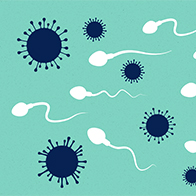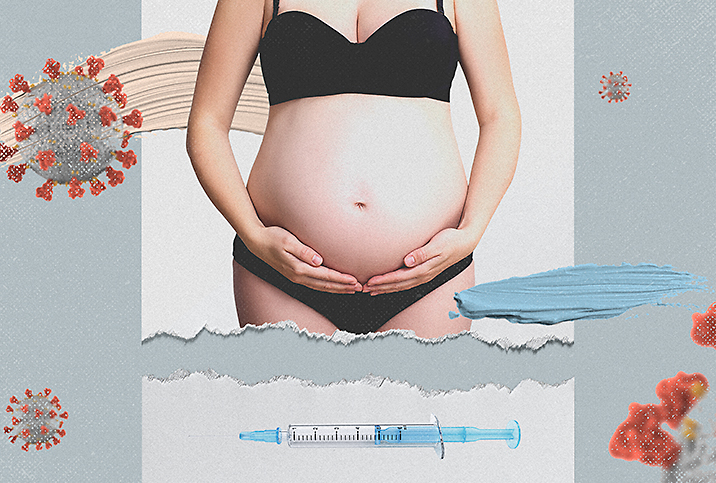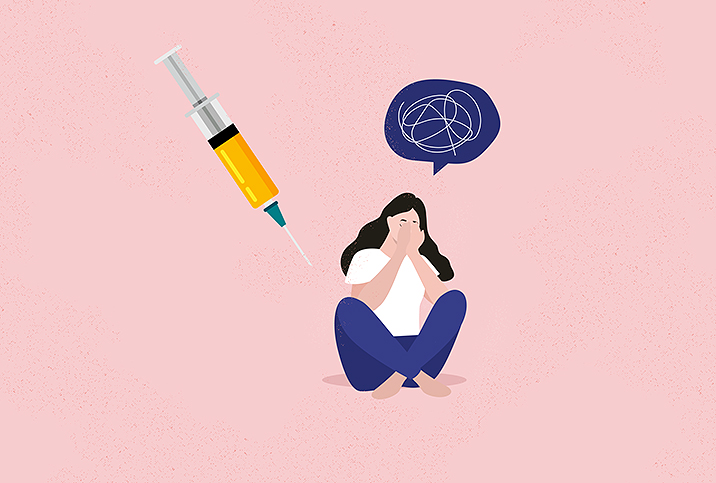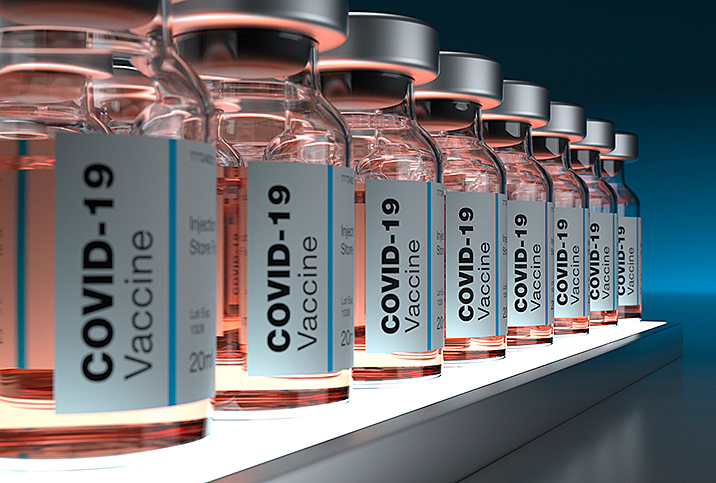Fertility Not Affected by COVID-19 mRNA Vaccines, New Study Finds
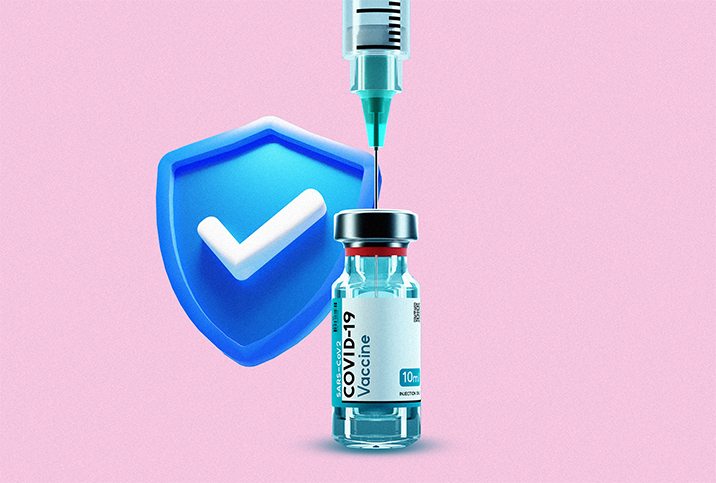
New research on the COVID-19 mRNA vaccines, Pfizer and Moderna, indicates they do not affect fertility.
The study, published January 25, 2022, in the peer-reviewed journal Obstetrics and Gynecology, looked at 2,152 patients (436 vaccinated and 1,716 unvaccinated) who underwent controlled ovarian hyperstimulation (COH) or single euploid frozen-thawed embryo transfer (FET).
The researchers found no association between COVID-19 vaccination and fertilization rate for the 1,205 patients (222 vaccinated and 983 unvaccinated) who received COH. Additionally, there was no association for secondary outcomes, including "eggs retrieved, mature oocytes retrieved, mature oocytes ratio, blastulation rate, and euploid rate."
This research joins other recent studies, all of which point to no adverse effect on pregnant people who receive the COVID-19 vaccine—or their babies.
For the 947 patients (214 vaccinated and 733 unvaccinated) who received FET, researchers found no significant association between vaccination and clinical pregnancy rate, or the secondary outcomes assessed, which included "pregnancy rate, ongoing pregnancy rate, biochemical pregnancy loss rate, and clinical pregnancy loss rate."
"Administration of COVID-19 mRNA vaccines was not associated with an adverse effect on stimulation or early pregnancy outcomes after IVF," concluded the study's authors.
This research joins other recent studies, all of which point to no adverse effect on pregnant people who receive the COVID-19 vaccine—or their babies. A study published on January 4, 2022, by the Centers for Disease Control and Prevention (CDC) of more than 46,000 pregnant women found that COVID-19 vaccination does not increase the risk of premature delivery or a smaller birth size.
Vaccines are recommended for pregnant people and those looking to get pregnant
"Women have been reluctant to receive the vaccine due to limited information about vaccine safety," stated Heather Lipkind, M.D., a Yale Medicine OB-GYN, high-risk pregnancy specialist, and lead author of the CDC study, in a recent article about the CDC study by Yale Medicine. "However, now, given the increasing rates of Omicron, protection provided by the vaccine is more important than ever."
While all the evidence suggests the vaccine is safe for pregnant people, COVID-19 infection is associated with several adverse outcomes. A 2021 multinational study published in JAMA Pediatrics found that contracting COVID-19 while pregnant increases the risk of maternal and infant death, as well as preeclampsia and preterm birth.
"COVID-19 in pregnancy was associated with consistent and substantial increases in severe maternal morbidity and mortality and neonatal complications when pregnant women with and without COVID-19 diagnosis were compared. The findings should alert pregnant individuals and clinicians to implement strictly all the recommended COVID-19 preventive measures," the study authors concluded.
But despite this overwhelming evidence and the urging of the vast majority of OB-GYNs and all leading health organizations, vaccination rates among pregnant people remain low. According to the CDC, as of January 15, 2022, only 42.6 percent of pregnant individuals have been vaccinated.
Though the CDC encourages all pregnant people to get vaccinated—and boosted—many remain hesitant due to false claims that the vaccines cause infertility.
"Unfortunately, there are many videos online...from very prominent doctors that cast a bad spell on the vaccine," said Daniel Roshan, M.D., F.A.C.O.G., in a recent interview with Giddy. But all of these claims are unsubstantiated.
"It's a good idea for all of us to read the research available and the data on the vaccines and COVID," Roshan continued, "and to make a wise decision, rather than just listening to some people on the internet."








